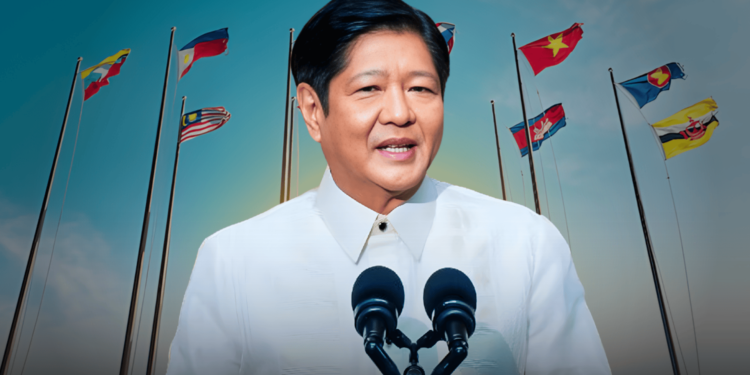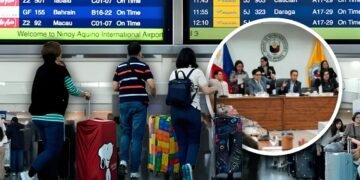President Bongbong Marcos has confirmed that the Philippines will assume the chairmanship of the Association of Southeast Asian Nations (ASEAN) in 2026, taking over the hosting duties originally assigned to Myanmar, which deferred its turn due to political instability. The announcement comes at a time when China is expanding its presence in the West Philippine Sea and ASEAN is strengthening economic ties with Beijing through new trade agreements that could shape the region’s security and economic environment.
One of the key developments during the 47th ASEAN Plenary in Kuala Lumpur was the signing of the ASEAN-China Free Trade Area 3.0 Upgrade. The agreement expands trade cooperation with China — the bloc’s largest trading partner — by covering digital trade, green development, supply chain resilience and wider market access. ASEAN leaders described the upgrade as a critical step toward making the region more competitive and less vulnerable to external shocks.
The Philippines also signed the Second Protocol to Amend the ASEAN Trade in Goods Agreement, which modernizes trade rules within the bloc. Trade Secretary Cristina Roque said the updated protocols will “empower small and medium enterprises and make trade systems more responsive and resilient.”
This economic momentum underscores a difficult reality. ASEAN’s economies are deeply intertwined with China’s, even as several member states face growing maritime security concerns. For the Philippines, which has openly challenged Beijing’s actions in its waters, this economic-security overlap will shape its approach as chair in 2026.
In his speech at the plenary, Marcos said the Philippines is “committed to making ASEAN a driver of growth and a force for stability.” He added, “ASEAN must remain relevant to our people by turning commitments into outcomes that improve lives.” He reaffirmed the country’s commitment to ASEAN Vision 2045, describing the upcoming chairmanship as a chance to push for practical cooperation that benefits the region.
Marcos also underscored ASEAN Centrality as a stabilizing force in the Indo-Pacific and stressed the importance of upholding international law. “We must remain steadfast in our shared commitment to a rules-based international order,” he said, citing the United Nations Convention on the Law of the Sea and the Biodiversity Beyond National Jurisdiction Agreement as central to the Philippines’ legal position on maritime security.
ASEAN remains divided on how to address China’s growing assertiveness in the South China Sea. Countries such as Cambodia and Laos, which maintain close economic and political ties with Beijing, have often taken a cautious or neutral stance, resisting language that directly criticizes China in joint statements. This has, in the past, softened or stalled ASEAN communiqués on sensitive issues.
In contrast, the Philippines and Vietnam have consistently pushed for stronger language defending sovereign rights, backed by the 2016 arbitral ruling under UNCLOS. Indonesia and Malaysia have also raised concerns over incursions into their exclusive economic zones. These divisions have made it difficult for ASEAN to issue unified statements and have slowed progress on the long-delayed Code of Conduct meant to manage tensions in disputed waters.
Even as these divisions persist, ASEAN is expanding its membership. Timor-Leste was officially welcomed during the summit, marking the beginning of its integration into the regional bloc. Marcos said its inclusion “marks another milestone in ASEAN’s growth as a community that embraces diversity and shared aspirations.”












